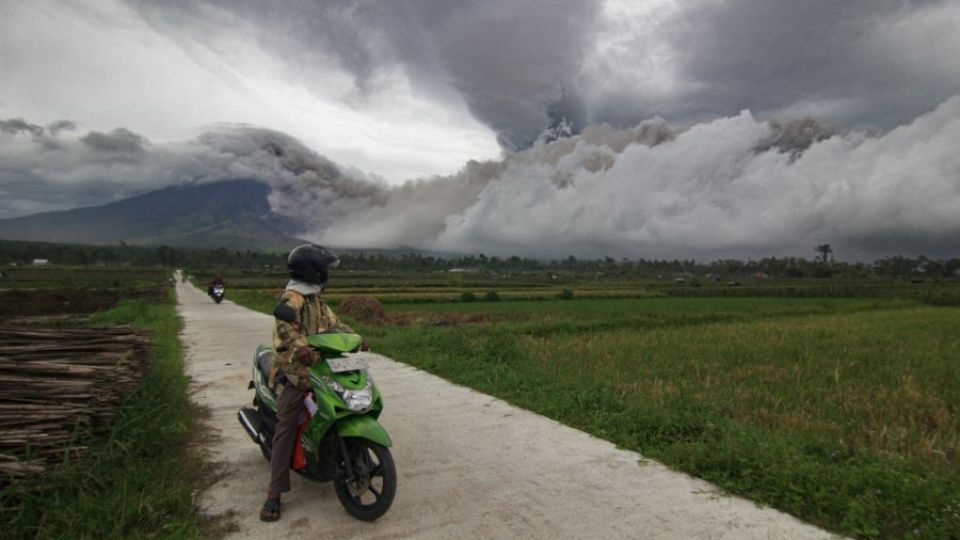February 10, 2025
JAKARTA – Mount Semeru, located on the border between Lumajang and Malang in East Java, erupted dozens of times over the past few days, sending ash columns and triggering ashfall on villages around the volcano.
Data from the Semeru observation post in Lumajang showed that the volcano had erupted three times between midnight and 3 a.m. on Friday. The mountain spewed thick grayish ash columns between 500 and 700 meters above the summit, which drifted to the north.
Semeru observation post official Mukdas Sofian said that the volcano also erupted 55 times on Thursday.
“However, we could not observe all of the ash columns because the mountain’s summit was obscured by fog,” Mukdas said as quoted by Kompas.
Mukdas cautioned the public to stay clear of areas within 500 m of the Besuk Kobokan River, the projected path of any lava flow, because of the potential for pyroclastic clouds and lahar that could extend up to 13 kilometers from the summit.
Additionally, residents are prohibited from engaging in any activities within an 8 km radius of the summit because of the risk of falling rocks.
In addition to Besuk Kobokan, residents have been warned to be alert for potential pyroclastic clouds, lava or lahar along the Besuk Kembar and Besuk Sat rivers and their tributaries.
Authorities have maintained Mt. Semeru’s status at Level II waspada (advisory) on the four-tier volcano alert system.
The districts of Candipuro, Pronojiwo, and Pasrujambe, located 13 to 18 km from Semeru’s summit, have experienced moderate to heavy ashfall in recent days, prompting authorities to advise residents to wear masks and goggles when venturing outdoors.
Read also: Thousands refuse evacuation despite Mount Ibu volcano eruptions
Sugiyono, an official at Semeru’s Curah Kobokan observation post, stated that the ashfall was triggered by strong winds at the summit, which carried volcanic material from the volcano’s daily eruptions that had accumulated on the mountain slopes.
“These strong winds have also made it challenging for us to observe Semeru’s ash columns,” he said on Thursday.
Head of the Lumajang Disaster Mitigation Agency (BPBD), Patria Dwi Hastiadi, said the eruptions that occurred on Semeru in the past few days were still considered normal volcanic activities.
“However, we urge residents living at the foot of the mountain to stay away from rivers due to the significant risk of lahar flows, especially given the ongoing bad weather,” he said.
Semeru has been showing heightened volcanic activity since November of last year. The 3,676 m volcano erupted 475 times in January alone, with an average of 15 eruptions per day.
The volcano experienced two massive eruptions in the past few years, including an eruption in December of 2021 that killed 51 people and forced nearly 10,000 others to flee their homes.
In December of the following year, authorities were forced to evacuate 2,000 residents living around the mountain after it spewed a cloud of ash 15 km into the sky.
Authorities recently announced that the volcano would be off-limits to the public until further notice, citing safety concerns due to increased volcanic activity and the ongoing adverse weather conditions in the area.


